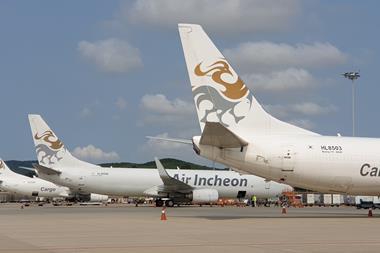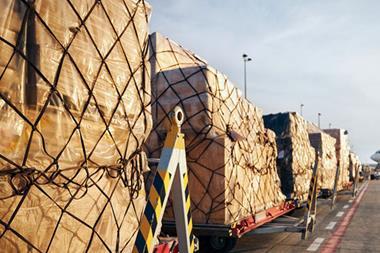The Association of Asia Pacific Airlines (AAPA) has revealed in its preliminary financial performance figures that airlines based in the region recorded $3.8bn in combined net earnings in 2019, a 25% decline compared with the $5.1bn achieved in 2018.
The AAPA said that Asia Pacific based airlines' profitability was impacted by intense competition adding downward pressure on yields.
Meanwhile, air cargo demand was affected by the escalation of trade disputes such as the US-China trade war, as well as by a combination of lower demand and downward pressure on freight rates.
In light of this, international air cargo traffic, measured in freight tonne kilometres (FTK), declined by 5% in 2019, which the AAPA noted was the steepest fall since the global financial crisis.
Combined cargo revenues for Asia Pacific-based airlines decreased by 14.5% to $18.4bn in 2019, reversing the double-digit gains achieved in 2018.
"Asian airlines bore the brunt of the escalation in trade tensions, as they collectively account for over one-third of global air cargo traffic," the AAPA said.
Asian airlines record a 20% drop in cargo demand in March
AAPA: Global airfreight demand “holding up relatively well”
IATA: Governments must ‘cut red tape’ to bridge capacity shortfall
With global jet fuel prices down by 7.2% to an average of US$78.9 per barrel, fuel expenditure fell by 4.5% to $52.8bn. Non-fuel expenditure rose by 1.8% to $147.6bn, on the back of higher depreciation costs as well as landing fees and en-route charges.
The APPA said that the decline in average fuel prices provided some relief to operating expenditure, but this was offset by higher non-fuel expenses. Consequently, overall operating profit declined by 7.4% to $10.1bn, whilst operating margin edged 0.4 percentage points lower to 4.8% for the year.
Commenting on airlines' present situation — battling through the coronavirus pandemic — Subhas Menon, AAPA director general, said: "Airlines have been forced to ground thousands of aircraft and are currently operating only skeletal networks to meet demand for repatriation flights as well as for shipments of medical supplies and essential goods.
"Airlines worldwide are fighting for their very survival, given the collapse of demand. Hopes of a V-shaped recovery have waned. It may take years for the industry to recover to pre-coronavirus levels. Nevertheless, the early restart of aviation will spur global recovery from the current crisis."
Menon concluded: "To this end, the Asia Pacific aviation community is committed to working closely with governments, public health authorities, and other international bodies in charting a course for a timely and measured restoration of air services."










